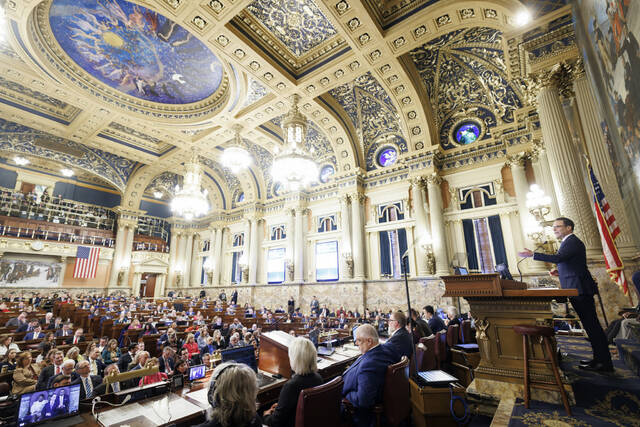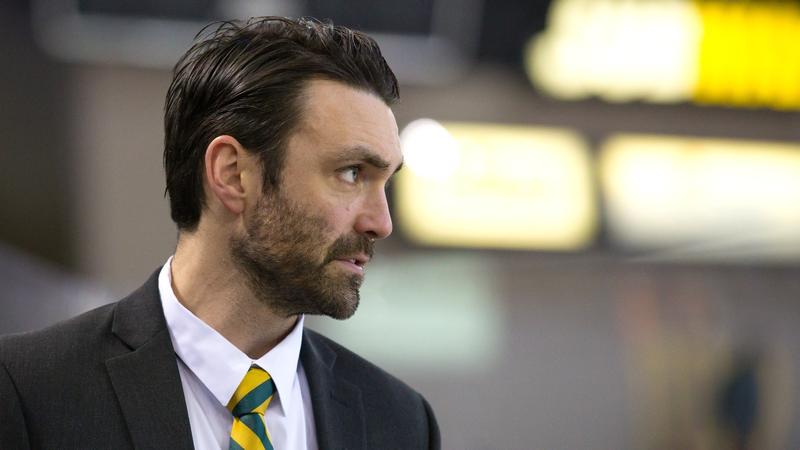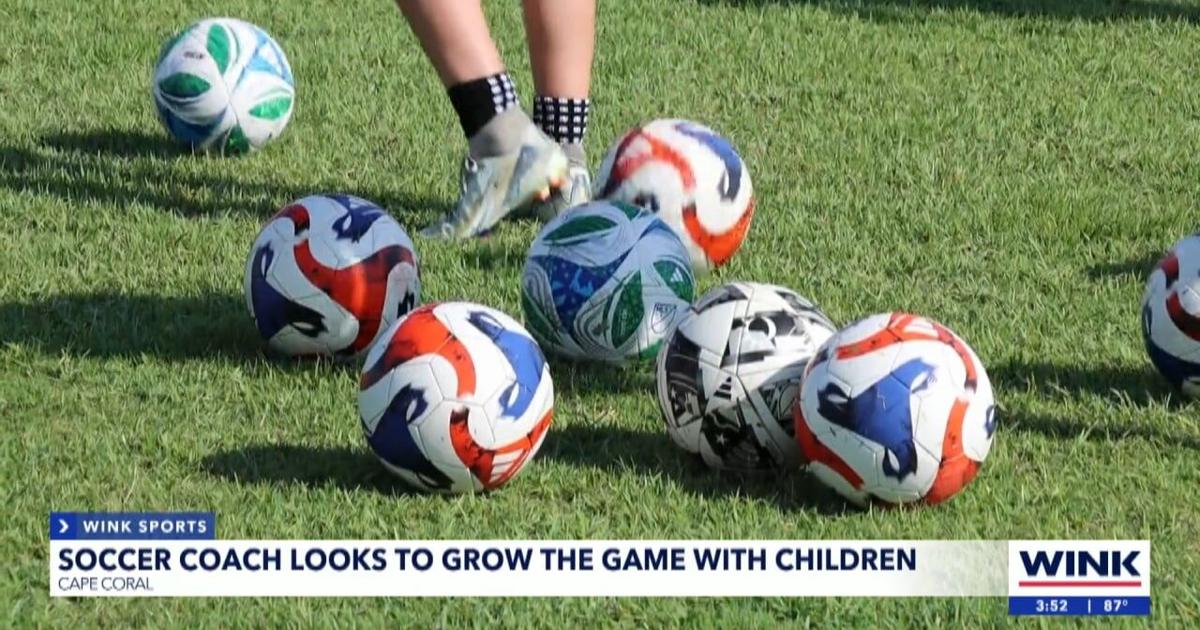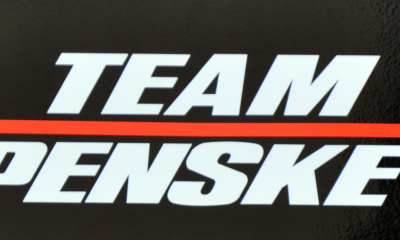College Sports
Fights over transit, skill games, and overall spending mean the Pa. budget will again be late
HARRISBURG — Pennsylvania’s state budget is going to be late for the fourth year in a row. It’s relatively common in Harrisburg for deals to be delayed a week or two as lawmakers hash out final details. But the depth of the current disagreements could make this impasse longer. And as past deadlocks have […]

HARRISBURG — Pennsylvania’s state budget is going to be late for the fourth year in a row.
It’s relatively common in Harrisburg for deals to be delayed a week or two as lawmakers hash out final details. But the depth of the current disagreements could make this impasse longer. And as past deadlocks have shown, delays can have real consequences for publicly funded services, from libraries to schools to child welfare programs.
Top lawmakers and staff for Democratic Gov. Josh Shapiro, state House Democrats, and state Senate Republicans have been meeting behind closed doors. But to reach a deal for the coming fiscal year, which begins July 1, they will have to navigate “very deep philosophical differences,” Senate Majority Leader Joe Pittman (R., Indiana) told reporters last week.
“It is slow-moving, and it is tedious work,” Pittman added.
Pennsylvania currently has a budget surplus — about $11 billion — but has been steadily spending through it, in large part because the state has a longstanding structural deficit, which means it spends more every year than it takes in.
Shapiro and fellow Democrats, who control the state House, want to use $5 billion from the surplus to fund what they see as bedrock needs, including increasing funding for K-12 education, bailing out struggling public transit agencies, and maintaining health coverage for low-income people.
Republicans in charge of the state Senate want to reduce — or at least slow the growth of — this spending, which they say will prevent the need for future tax increases.
There are few revenue proposals on the table. One viable option is regulating and taxing skill games, the slot-like terminals that have popped up in bodegas, taverns, and VFWs across the commonwealth. But a messy fight between state Senate Republicans and the game’s producers and purveyors has cast doubt on the possibility of a deal.
All of these competing visions make it likely a deal won’t be finalized for days, if not weeks, despite a ticking clock for transit agencies like Philadelphia’s SEPTA to forestall deep service cuts, along with growing uncertainty for human service providers.
That delay, top policymakers in both parties say, is the cost of doing business.
“We would love to have that deal done on June 30,” said state Rep. Jordan Harris (D., Philadelphia), who chairs the House Appropriations Committee. “But if that deal is, you know, a few days after June 30, but it reflects our priorities, I think that is a win for all of Pennsylvania.”
Added Pittman: “We have seen this movie before, and on July 1, the sun will come up, and I don’t think the good people of Pennsylvania will see any notable difference in their daily lives.”
While the state has a constitutional obligation to pass a balanced budget by June 30 each year, missing that deadline by a few weeks typically doesn’t interrupt operations much.
There are two major parts of the budget. One is a spending plan that provides a blueprint for the commonwealth’s financial outlays and revenue collections for the fiscal year. The other consists of one or more code bills, pieces of legislation that specify how money is spent, and can include dozens of policy tweaks.
Even without a spending plan, the commonwealth must pay its employees and debts, and cover its share of federal programs like Medicaid, among other obligations.
Schools and county services, like child welfare offices and mental health and drug treatment, will face a crunch only if a spending plan delay stretches into a weekslong impasse. A smaller pool of funding recipients can suffer if certain code bills are late — in the past, these have included libraries and community colleges.
All of this depends, however, on the particulars of the budget talks.
The last time the state got a real taste of late budget consequences was in 2023 — Shapiro’s first year negotiating a deal — when talks broke down over whether to fund private school vouchers with taxpayer money. Lawmakers didn’t pass a spending plan until early August.
In the meantime, the state missed tens of millions of dollars in payments to public universities, community colleges, special education programs, and day care and preschool programs.
These programs, along with other recipients of state funding, such as county child welfare offices, typically have some reserves that allow them to weather a missed state payment or two. But longer delays can cause them to start cutting services or taking out loans.
In 2023, most didn’t have to wait that long. The bulk of the state’s regular spending resumed when the spending plan passed in August.
However, lawmakers that year remained bitterly deadlocked over key code bills that were needed to authorize more than a billion dollars’ worth of spending. The stalled items included money for community colleges, libraries, poor school districts, public defense, and a popular home repair program.
These unlucky organizations had to tighten their belts while they waited for the legislature to compromise. A community college administrator told Spotlight PA at the time that colleges either had to dig into reserves or take on loans. A library director in the Poconos said she had to cut programming.
Tensions finally thawed in November, and Shapiro authorized a few of the stalled spending items, including a measure increasing reimbursements to ambulance services. But the deal wasn’t totally finalized until mid-December — six-and-a-half months after the deadline.
A history of impasses
Budgets like that one aren’t the norm, but they also aren’t unheard of.
In the past 20 years, the state has passed 13 late budgets. This year’s budget will likely be the 14th.
(For this count, Spotlight PA is considering a budget to be passed when lawmakers have approved an entire spending plan and enabled most state money to keep flowing — even though, as in 2023, the entire deal might not be sewn up.)
Most of those spending plan delays were short, but two, in 2009 and 2015, went for more than 100 days. Those long impasses left a lasting mark on relationships in Harrisburg, and in the case of the 2009 deadlock, on state law.
In 2009, Democratic Gov. Ed Rendell, a Democratic-controlled state House, and a Republican-led state Senate received national attention for a 101-day impasse as the state struggled to deal with a revenue shortfall amid the Great Recession. Rendell wanted to raise taxes. Republicans wanted to slash spending. And for months, neither side wavered as the state missed payments to K-12 schools, social services, and many other programs.
State employees also missed paychecks and agencies essentially shut down in July, leading to protests in the Capitol, before Rendell signed a partial plan that allowed them to resume operations.
That interruption led to a sea change in the commonwealth — the state Supreme Court ruled that the federal Fair Labor Standards Act overrode state constitutional language that said most state funds couldn’t be spent without an enacted budget. In other words, an impasse no longer meant state workers going unpaid.
It was a relief for state workers, but had the side effect of getting rid of one of the most potent disincentives for a late deal.
The 2009 impasse wasn’t Harrisburg’s worst in recent memory, though. In 2015, former Democratic Gov. Tom Wolf, who was then in his first term and working with a fully Republican-controlled legislature, presided over a record nine-month standoff.
That year’s impasse resembled 2009’s in a few ways. Pennsylvania was still struggling for revenue, and Wolf wanted to raise taxes while Republicans adamantly refused. While state workers still got their paychecks, other government-funded services were hard hit.
Among them were schools. Some had to cancel tutoring, electives, and extracurriculars. State-subsidized pre-K programs had to temporarily shut down, and domestic violence centers also dealt with short-term closures.
Wolf’s approval ratings also took a temporary hit, and the experience shaped state politics for the rest of his tenure. Despite a chronic structural deficit, across two terms Wolf never convinced the legislature to raise sales or income taxes, and there haven’t been serious attempts to do so since.
This year, few in Harrisburg predict another record-setting impasse, though concerns about a deadlock running into fall are on many lobbyists’ minds.
Whatever the end date, the process is frustrating for rank-and-file lawmakers, who have to wait for leaders to come to a deal in closed-door talks, then quickly weigh and vote on that proposal, often in a matter of hours.
“I wish we’d start the process a lot sooner,” state Rep. Jason Ortitay (R., Washington) told Spotlight PA.
Because while “everybody knows” the legislature won’t make the deadline, Ortitay added, “nobody says it.”
BEFORE YOU GO… If you learned something from this article, pay it forward and contribute to Spotlight PA at spotlightpa.org/donate. Spotlight PA is funded by foundations and readers like you who are committed to accountability journalism that gets results.
College Sports
Penn State Is The Best In College Football
The collection of college football media that has Penn State as the preseason No. 1 team or at least the team to beat continues to grow. Phil Steele has Penn State as his No. 1 team and feels this squad will capture the program’s first national championship since 1986. Joining Steele is ESPN’s Dan Orlovsky, […]

The collection of college football media that has Penn State as the preseason No. 1 team or at least the team to beat continues to grow.
Phil Steele has Penn State as his No. 1 team and feels this squad will capture the program’s first national championship since 1986.
Joining Steele is ESPN’s Dan Orlovsky, who on their morning show Get Up picked Penn State as the best team in the country.
In the segment “Heather’s Heaters,” the question was will the SEC fail to win the national championship in a third consecutive season, and Orlovsky agreed.
“I think Penn State is one of the if not the best team in college football,” Orlovsky said. “Obviously Ohio State will be there, we have to see what happens about the quarterback position (Ohio State has not named a starter between Julian Sayin and Lincoln Keinholz). I think Illinois will be awesome in the Big Ten. There are a lot of players in the Big Ten.”
Orlovsky mentioned the SEC will be amongst the top conferences. The SEC won six of the first 10 national championships in the first College Football Playoff format.
Clemson being a team that can contend for a national championship has LSU in Week 1, a team Orlovsky feels will be a thorn in Big Ten and SEC teams’ side. Steele has Clemson finishing No. 2 in the country.
Penn State opens its season August 30 against Nevada in Beaver Stadium.
College Sports
Matt Curley Named Associate Head Coach of Nanooks Hockey
Story Links FAIRBANKS – The Alaska Nanooks hockey program has officially announced the hiring of Matt Curley as its new associate head coach. Curley joins the Nanooks after four seasons as general manager and head coach of the USHL’s Des Moines Buccaneers. “We’re incredibly excited to welcome Matt Curley to the Alaska […]

FAIRBANKS – The Alaska Nanooks hockey program has officially announced the hiring of Matt Curley as its new associate head coach. Curley joins the Nanooks after four seasons as general manager and head coach of the USHL’s Des Moines Buccaneers.
“We’re incredibly excited to welcome Matt Curley to the Alaska Nanooks as our associate head coach,” said head coach Erik Largen. “Matt brings a wealth of experience—from winning international medals with USA Hockey, to coaching in the USHL, NCAA, and Europe. He’s a proven leader who’s developed players at every level, and his time as a head coach at UAA gives him unique insight into what it takes to build and sustain a successful program in Alaska. Even more important than his resume is the kind of person he is. Matt is an unbelievable person, hardworking, and deeply committed to mentoring young men both on and off the ice. He builds strong relationships, brings out the best in his players, and leads with integrity. We’re fortunate to add someone of his caliber to our staff and excited for the future of Nanooks Hockey.”
Curley served as head coach and GM of the Des Moines Buccaneers from 2021–2025. Before his time in the USHL, he was head coach at the University of Alaska Anchorage from 2018–2021 and spent two seasons as an assistant coach at Bentley University from 2013–2015. Between his first two NCAA stints, Curley was the head coach for RB Hockey Juniors in Austria, spending 2015-18 there.
His resume also includes several years on the international stage with USA Hockey, serving as an assistant coach for the U.S. Under-17 and Under-18 national teams during the 2010–11, 2011–12, 2012–13, 2014–15, 2021–22, and 2022–23 seasons.
A native of Madrid, N.Y., Curley played four seasons at Clarkson University (2003–2007) and won the 2006-07 ECAC Tournament. Following college, he had a two-year professional career that included stints in the SPHL, IHL, and ECHL.
“I couldn’t be happier to be coming back to the state of Alaska, a place that has always felt like home to me,” said Curley. “I am grateful for the opportunity to work alongside Coach Largen, the rest of the Nanooks hockey staff and players. It is a privilege to be a part of a program that is so strongly supported by the community and University. I am looking forward to contributing towards the continued growth and development of Nanooks hockey.”
Curley’s combination of experience and leadership is expected to assist the Nanooks continue building momentum in years to come.
Follow the ‘Nooks
IG – @NanooksHockey
X – @NanooksHockey
FB – Alaska Nanooks Hockey
College Sports
SWFL coach helps local kids aim for soccer success and college dreams
Fort Myers, FL (33916) Today Locally heavy thunderstorms during the evening will give way to partly cloudy skies after midnight. Low around 75F. Winds SSE at 10 to 15 mph. Chance of rain 100%. Locally heavy rainfall possible.. Tonight Locally heavy thunderstorms during the evening will give way to partly cloudy skies after midnight. Low […]



Fort Myers, FL
(33916)
Today
Locally heavy thunderstorms during the evening will give way to partly cloudy skies after midnight. Low around 75F. Winds SSE at 10 to 15 mph. Chance of rain 100%. Locally heavy rainfall possible..
Tonight
Locally heavy thunderstorms during the evening will give way to partly cloudy skies after midnight. Low around 75F. Winds SSE at 10 to 15 mph. Chance of rain 100%. Locally heavy rainfall possible.
Updated: July 15, 2025 @ 4:26 pm
College Sports
Corbo, Lemieux and Zalc Named Stats Perform Preseason All-Americans
HANOVER, N.H. — Three members of the Dartmouth football team have been named Stats Perform Preseason All-Americans, as announced by the organization on Tuesday. Tight end Chris Corbo and offensive lineman Delby Lemieux were named to the first team, with placekicker Owen Zalc earning second-team honors. The three honorees mark the most in the Ivy […]

Following last season, Corbo was a first team All-Ivy honoree, while also earning first team All-America by the AFCA and Walter Camp. He enjoyed a stellar junior season, leading the Big Green with seven touchdown receptions — the most by a Dartmouth player since Drew Estrada had eight in 2019. Corbo was also an Associated Press honorable mention All-American. His 32 receptions were second on the team, while his 315 yards were third. Corbo had a touchdown in seven of the 10 games in a remarkably consistent season. His seven receiving touchdowns were second nationally amongst tight ends, while his 1.4 touchdowns per game lead the country amongst his position.
An AP honorable mention All-American in 2024, Lemieux was first team All-Ivy while also garnering second team All-America recognition from FCS Football Central. As an anchor of the offensive line, the Big Green finished top 20 nationally in fewest sacks allowed while finishing third in the Ivy League in rushing offense (166.5 yards per game).
The reigning Ivy League Special Teams Player of the Year, Zalc finished the 2024 season 13-of-17 on field goals, with impressive range. Zalc knocked through a program-record 54-yard field goal against Harvard. At Merrimack, he had a 50-yarder, while also converting the game-winning 32-yard field goal with three seconds remaining to wrap up a hard-fought 16-14 win. Also a first team All-Ivy honoree for a second straight season, Zalc was named Ivy League Special Teams Player of the Week three times — following that Merrimack win, the following week after Penn and after the record kick against the Crimson.
Dartmouth football fans can get a jump on the 2025 season by securing their season tickets and group tickets for the fall when the Big Green attempt to defend their Ivy League title. Click here for more information.
College Sports
New NFHS Officers, Board Members Elected for 2025-26
Ron Nocetti, executive director of the California Interscholastic Federation (CIF), is the new president of the National Federation of State High School Associations (NFHS) for 2025-26. Nocetti, the 66th president of the NFHS, began his one-year term July 2 following the NFHS Summer Meeting, which was held this year in Chicago, Illinois. Lance Taylor, […]

Ron Nocetti, executive director of the California Interscholastic Federation (CIF), is the new president of the National Federation of State High School Associations (NFHS) for 2025-26. Nocetti, the 66th president of the NFHS, began his one-year term July 2 following the NFHS Summer Meeting, which was held this year in Chicago, Illinois.
Lance Taylor, executive director of the Arkansas Activities Association (AAA), was elected by the NFHS Board of Directors to the position of president-elect for the upcoming year.
The following individuals were approved by the NFHS National Council for four-year terms on the NFHS Board of Directors: Doug Ute, executive director, Ohio High School Athletic Association (OHSAA), Section 2; Erich Martens, executive director, Minnesota State High School League (MSHSL), Section 5; and Misty Wharton, superintendent, Nestucca Valley School District, Cloverdale, Oregon, at large, Sections 5 and 8.
Ron Nocetti was named the CIF’s ninth executive director in 2019. He is responsible for appeals, the CIF constitution and bylaws, interpretations, section commissioners, eligibility, CIF Executive Committee/Federated Council, legislation, sports medicine and liaison to the NFHS.
Before succeeding Roger Blake as the leader of the CIF, Nocetti had been the CIF’s associate executive director since 2012. Nocetti, who heads the CIF’s 10 sections and more than 1,600 member schools, has been involved in education since 1991 as a teacher, coach, athletic director and administrator. In 2008, he was hired as the CIF director of championship events, promoted to senior director shortly thereafter before becoming the associate executive director.
As associate executive director, Nocetti was responsible for advisory committee membership, budget/finances, contracts, equity, legislation, the participation census, the Pursuing Victory with Honor program, sports medicine, as well as administering the sports of baseball, football and golf.
Nocetti received his bachelor’s degree in economics, a master’s degree in sport management and a doctorate in educational leadership – all from the University of San Francisco.
Lance Taylor was named executive director of the Arkansas Activities Association (AAA) in 2006, after seven years as the organization’s associate executive director (2000-03), deputy executive director (2003-05) and executive director-elect (2005-06). Prior to joining the AAA in 2000, he was a teacher, coach and principal at three Arkansas schools for 13 years.
After graduating from Arkansas State University (ASU) in 1987, Taylor began his career as a teacher and coach at Hot Springs (Arkansas) Cutter Morning Star High School (1988-93) and Greenwood (Arkansas) High School (1993-98). He then served two one-year stints as a high school principal at Greenwood High School and Batesville (Arkansas) High School.
Taylor, who is the second-longest tenured state association executive director, will be serving his second term on the NFHS Board of Directors. He previously served a term from 2011 to 2015. At 19 years of service, Taylor is second behind Jerome Singleton, who has directed the South Carolina High School League since 2005.
Taylor’s other involvement on NFHS committees has been extensive. He has held positions on the Football Rules Committee, Soccer Rules Committee, Sports Medicine Advisory Committee, Citizenship Committee, Appeal Board, Summer Meeting Advisory Committee, NFHS HOLDCO Committee and the NFHS Foundation Board of Directors. In addition, he has been a member of two NFHS Strategic Planning Committees, including chair of the 2016-2021 committee.
A certified principal and superintendent and Arkansas native, Taylor received his master’s degree in secondary administration from ASU in 1992.
Doug Ute, a former coach, teacher, athletic administrator, principal and superintendent who spent 35 years in Ohio’s schools, was named the executive director of the OHSAA in 2020. He is the 11th director in the history of the OHSAA.
Ute joined the OHSAA near the height of the COVID-19 pandemic and guided the organization through the ever-changing environment. Under his leadership, the OHSAA was able to navigate financial, attendance and facility availability restrictions in order to complete all of its state tournament events during the 2020-21 school year.
Along with his duties as executive director, Ute serves as the OHSAA’s sport administrator for girls and boys basketball, directly overseeing the coordination of the regional and state tournaments in those sports.
Ute was a school superintendent for 20 years—nine years at Marion Elgin Local Schools and 11 years at Newark City Schools—prior to assuming his post at the OHSAA. He also coached and taught at Noble Local Schools in eastern Ohio and Buckeye Central High School, which is near his hometown of Bellville in north central Ohio.
Ute began his career in 1988 as a basketball coach and part-time business teacher at Noble Local Schools (Shenandoah High School) in Sarahsville in eastern Ohio. He then went to Buckeye Central in New Washington as a teacher and coach, while also serving as the athletic administrator. In 1996 he became the principal at Marion Elgin and then took over as superintendent in 2000 at Elgin, a district of 1,500 students. Ute became superintendent in Newark in 2009.
Ute was a standout student-athlete at Clear Fork High School, graduating in 1980, and played basketball at Ashland University, where he led the team in assists all four years and left as the school’s career assists leader (he currently ranks second with 687, an average of 6.36 per game). He earned a bachelor’s degree in business administration and marketing and would later return to Ashland to earn a master’s degree in school administration, a graduate teaching degree in business, a principal’s license and a superintendent’s license.
Erich Martens, a Minnesota native, has spent the majority of his educational and professional career in his home state. He currently serves as the MSHSL executive director, a role he has had since 2017. Behind his leadership, the League continues to thrive and serve as a national trailblazer for education-based opportunities for students. Martens is the seventh executive director in the 110-year history of the League.
Previously the principal for 13 years at Sauk Rapids-Rice High School in Sauk Rapids, Minnesota, Martens also served a four-year term on the League’s Board of Directors, including a one-year position as president, prior to assuming the executive director position.
Before his time at Sauk Rapids-Rice High School, Martens was principal at Sauk Centre High School from 1999 to 2004. He began his career in education in 1988 as a math instructor and coach at Sauk Rapids-Rice High School, Cosmos High School and Mitchell (South Dakota) High School.
A graduate of New Ulm High School in 1984, and four years later from St. John’s University in Collegeville, Minnesota, Martens has held numerous professional leadership roles, including the Minnesota Association of Secondary School Principals. While at New Ulm High School, he was a four-sport participant, a member of the band and choir and served in student leadership roles.
Misty Wharton has been superintendent of the Nestucca Valley School District in Cloverdale, Oregon, since 2017 after serving as principal of Nestucca Valley Elementary School for five years and social studies teacher at Nestucca High School for 10 years.
While serving as a teacher at Nestucca High School, her alma mater, Wharton coached cross country, track and field, and softball, and was the junior varsity coach for volleyball. After graduating from Nestucca High School, Wharton was a college golfer at Portland State University in Portland, Oregon.
Wharton has been heavily involved with the Oregon School Activities Association (OSAA), having served on the OSAA Delegate Assembly since 2017. She also has been a member and chair of the OSAA Budget Committee and has chaired the OSAA Classification and Districting Committee since 2021.
Wharton also is a member of the Coalition of Oregon School Administrators (COSA) and served on the COSA Equity Board of Directors.
College Sports
Paul Finebaum hints that new NIL landscape could derail college football powerhouse
Longtime ESPN analyst and SEC pundit Paul Finebaum predicts one of the game’s top powers to falter in this season due to challenges stemming from the Name, Image and Likeness world of college football. Schools have been forced to adapt to a new NIL era in the aftermath of the House settlement. The revenue-share model, […]

Longtime ESPN analyst and SEC pundit Paul Finebaum predicts one of the game’s top powers to falter in this season due to challenges stemming from the Name, Image and Likeness world of college football.
Schools have been forced to adapt to a new NIL era in the aftermath of the House settlement. The revenue-share model, allowing schools to allocate up to $20.5 million to athletes this year, is the new status quo.
Despite the settlement’s proposed intention to reign-in the unsustainable NIL spending, those lofty deals, sometimes undeserved in terms of on-field performance, continues to a sticking point.
In an appearance on ESPN’s “First Take,” Finebaum revealed his questions of Georgia and two-time national champion head coach Kirby Smart after an uncharacteristic 2024 campaign.
After not losing a regular season game for the better part of three seasons, the Bulldogs suffered regular season losses to both Alabama and Ole Miss. Smart and Co. responded with their third SEC championship before falling to Notre Dame, 28-10, in the College Football Playoff quarterfinals.
Georgia enters the 2025 season with questions at quarterback after Carson Beck’s transfer to Miami on a reported NIL package worth $4.5 million.
Gunner Stockton is the favorite after replacing an injured beck in the SEC title game and playoff appearance. And his first season as the full-time starter features matchups against playoff contenders like Alabama, Ole Miss and Texas.
Those matchups will come at home, but Finebaum isn’t high on Stockton, or Georgia as a program in the current NIL landscape.
“This year they have those games at home, so they have a chance,” Finebaum said during SEC Media Days. “But I don’t think Georgia has a quarterback, which is what is going to be their undoing. Gunner Stockton did not show me anything in the just epic loss and loss of not only the game, but loss of composure and maybe loss of traction.”
“So I think Kirby Smart has a lot to answer for when he gets here this week,” Finebaum said. “But, NIL is the reason just to double up on what everybody else has said, there’s just so much going on you, you can’t hold on to your rosters, so you’re going to lose critical backup people or starters that may be the difference between an undefeated season and losing two or three games.”
Georgia’s decision to move on from Beck, stick with Stockton and not sign a transfer quarterback will be a talking point all season.
What Smart and his staff do have, as Stockton progresses, is the nation’s No. 2 roster. Only Texas ranks higher than the Bulldogs in blue-chip ratio this year.
That’s due, in part, to dominant recruiting. While talking heads wonder if Georgia can keep up with the NIL surge, the Bulldogs have yet to finish outside of the top five in recruiting in the last nine years and are coming off the No. 2 class in the 2025 cycle.
The talent will be there for Stockton to be successful, and it’s up to the redshirt junior and the Bulldogs to silence the doubters.
That journey will begin in the season opener against Marshall on Aug. 30 at 3:30 p.m ET (ESPN).
-

 Technology3 weeks ago
Technology3 weeks agoPet fitness and wellness trends for a healthier and happier dog
-

 College Sports3 weeks ago
College Sports3 weeks agoWAC to Rebrand to UAC, Add Five New Members in 2026
-

 College Sports3 weeks ago
College Sports3 weeks agoA new era of Dickinson hockey begins behind the bench – The Dickinson Press
-

 Motorsports2 weeks ago
Motorsports2 weeks agoWhy Cosmetics are Making Up for Lost Time in Women’s Sports
-

 Health3 weeks ago
Health3 weeks agoFlorida assault survivor shares hope for change with new mental health law
-

 Motorsports2 weeks ago
Motorsports2 weeks agoTeam Penske names new leadership
-

 Sports7 days ago
Sports7 days agoNew 'Bosch' spin
-

 Motorsports3 weeks ago
Motorsports3 weeks agoNASCAR This Week – Patriot Publishing LLC
-

 Youtube2 weeks ago
Youtube2 weeks agoBREAKING: NBA MVP Shai Gilgeous-Alexander signs the RICHEST annual salary in league history
-

 Sports1 week ago
Sports1 week agoE.l.f Cosmetics Builds Sports Marketing Game Plan Toward Bigger Goals






























